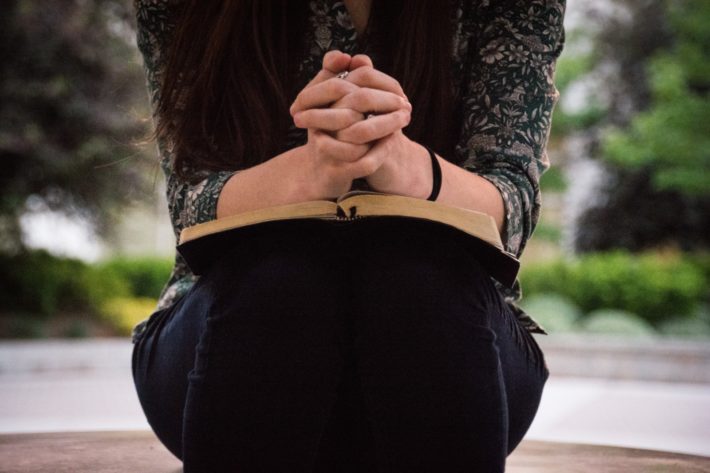I have never matched most people’s image of someone enslaved to money. I have never thrown ethics to the wind to get or keep a high-paying position; I have never been interested in a high-paying position at all. I have never run up huge credit card bills which I could not pay off. Yet my heart has been in bondage to the idol of money.

I grew up an only child in a home with an income that was quite adequate, although not huge. Both of my parents grew up in the Depression, and they were always anxious about money as a result. We lived very frugally. We did not deny ourselves anything; we simply did not want very much. My mother was a Christian, but my father was not, and so my mother’s contributions to the church were small. In fact, financial contributions to any organization were rarities for us.
I realized very early in life that the world had “haves” and “have-nots,” and that my family was among the “haves.” In addition to absorbing the anxiety that my parents felt about money, I felt a great deal of guilt about being a person of ordinary wealth when many people had so little. Partly due to that guilt, I began to tithe as soon as I had an earned income. I am here to tell you that giving is not a solution for guilt, whatever the source of that guilt. The epistle of 2 Peter reminds us that we were not bought with silver and gold, but with the precious blood of Christ. The grace of God is the only source of healing for guilt.
The summer after my sophomore year in college, my parents moved to Norman, Oklahoma. I became active in the college group at my church there; however, most of the people in the group did not attend college. Rather, they were mostly young adults who either were at the time or had been part of the “have-not” segment of society. These persons did not care at all about my financial status, and accepted all that I was and my background without judgment. My two summers with this group enabled me to start putting aside my fear and guilt. After college, I moved to St. Louis, where I joined a church that was racially and socio-economically diverse. My healing continued, although slowly, in that place.
In the fall of 1988, I attended a Ministry of Money workshop. Ministry of Money’s mission is to help Christians lay aside the emotional baggage that surrounds money, so that they are free to become good stewards. I was certain that the workshop would be difficult and painful, and I arrived fearful. In reality, Ministry of Money trains its leaders to function solely by affirmation and acceptance, and the workshop was pleasant and encouraging.
The first thing I was taught at the workshop was something I already knew: God loves me with total abandon. Nothing I do or fail to do with my money can change that. Next, I learned that because of that great love, God desired better for me than the fear and guilt I was feeling. I learned that I was not strong enough to be master of my money, and if I tried, money would become my master. Perhaps you have heard the saying that money is a good servant but a poor master. The saying is true as far as it goes, but I am not capable of mastering my money. Fortunately, God graciously offers to be Lord of my money along with the rest of my life, and God is strong enough to hold money in its proper place as a servant.
This is where tithing, and giving in general, come in. I am glad that my money goes to support church ministries and missions, for the church is an excellent cause, one of the best. But that is not why I tithe. God is a giver, and I am created in God’s image. Therefore, I can not fail to give without doing violence to the core of what God made me to be. Further, I need regular reminders that Christ is Lord of my money. The tithe is reasonably expensive, and is offered on a regular basis, and serves well as that reminder. I shudder to think how easily money could become my master if it were not for God’s gift of the tithe. The tithe is an incredible gift of grace.
By the grace of God, my relationship with money is now much healthier. I am usually able to look at my financial situation realistically, without undue anxiety or guilt. I accept the responsibility that comes with being a person of ordinary wealth, if not joyously, at least willingly. I know that I am called to that responsibility, and that God will give the grace to fulfill the call. I sometimes have to guard against becoming too complacent about my relationship with money, for I am certain God desires even more healing for me. Through it all, God has been present, being Lord of my money when I allow him to be, forgiving me when I allow money to become my master, and above all, loving me with total abandon.
By Denise Carpenter | Saturday, February 19, 2022